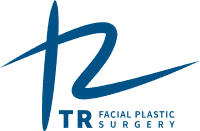Nasal reconstruction is sometimes necessary to restore appearance and functionality to the nose. There are several reasons a nasal reconstruction procedure may be required: to restructure a congenital deformity, to repair an injury, to revise a previous rhinoplasty or to reconstruct the nose after cancer treatment. Nasal reconstruction is typically performed by an otolaryngologist, often in conjunction with a plastic surgeon. Recovery from nasal reconstruction, particularly when it involves a complex procedure or multiple surgeries, may take several months.
Candidates for Nasal Reconstruction
Since nasal reconstruction is a major surgical treatment, candidates for the procedure should be in relatively good health in order for the surgery to have a successful outcome. The risks of this procedure are greater if the patient‘s health is compromised by chronic disease or who are:
- Taking blood-thinning medication
- Smokers
- Have vascular disorders
- Undergoing radiation therapy
- Have undergone another recent surgery
In some cases, these issues can be successfully addressed prior to surgery, for example if the patient stops smoking or is able to temporarily discontinue taking blood-thinning medication.
The Nasal Reconstruction Procedure
Prior to nasal reconstruction surgery, the surgeon must determine the exact anatomical location of the damage and evaluate the structural integrity and surface area about to be reconstructed. The amount of tissue loss, including loss of skin, cartilage and bone, must be considered. Most importantly, re-establishing and maintaining airflow must be addressed. Of particular concern is ensuring that the nasal airway will remain intact by building it up with cartilage so blockages will not occur later.
Frequently, more than one surgical procedure is necessary in order to complete a nasal reconstruction. An initial operation may be necessary to remove old scar tissue, to re-establish function, or to allow repositioning of normal tissues. While local anesthesia may be given to the patient for a relatively simple procedure, general anesthesia is necessary for multistage reconstructions.
Depending upon the size, depth and location of the repair site, one or more of the following techniques may be used in the reconstruction of the nose:
- Skin grafting
- Cartilage or bone reconstruction
- Skin flap formation
Grafting is often used for larger repairs. Skin is harvested from donor sites on the patient‘s body. Typically, the surgeon harvests skin from areas of the body that are normally unseen, such as behind the ear. If more skin is needed, it may be taken from the patient‘s thigh or groin. Every effort is made to provide an aesthetically pleasing result. Creating cutaneous flaps allows nasal tissue to be replaced with tissue of a comparable texture, color and pore visibility to the existing nasal skin.
Where the damage to the nose has resulted in structural deficiencies, cartilage may need to be replaced. Cartilage can be harvested from the ears, nasal septum or ribs. Where bone is needed, it is usually harvested from the jaw, hip, ribs or skull.
Additional plastic surgery may be required after reconstruction, in order to address scarring or deformities in skin tissue. Most often, nasal reconstruction is a successful, life-enhancing procedure, but, because the patient‘s appearance may be altered after surgery and because lifestyle changes may be involved in the healing process, psychological counseling may be necessary or desirable.
Risks of Nasal Reconstruction
Because nasal reconstruction is serious surgery, usually performed under general anesthesia, it presents the risks of any surgical procedure, including:
- Infection
- Breathing difficulty
- Excessive bleeding
- Stroke
There is also some danger that the vocal cords may be damaged during nasal reconstruction or that other adjacent tissue may be damaged. Because of the risk of postsurgical infection, some doctors prescribe antibiotics prophylactically.

